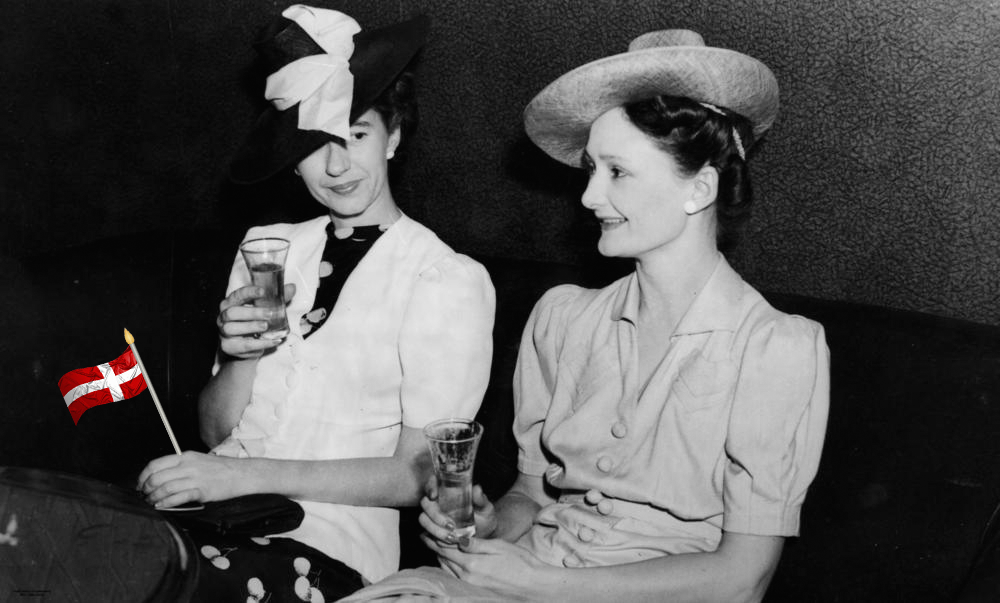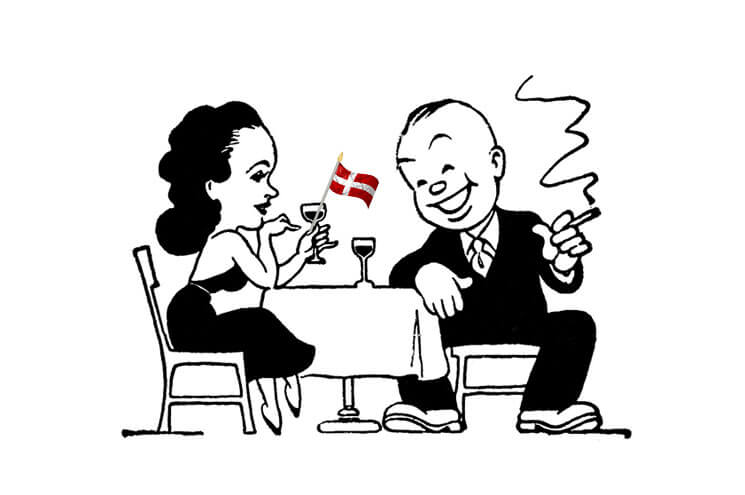More than a decade after moving to Denmark, I am pretty well integrated into Danish society.
I’ve learned to speak Danish, I pay my taxes, I bike everywhere, I send my daughter to a Danish school. I enjoy a nice slice of dark rye rugbrød – even when I’m on my own and don’t have to impress anyone with how healthy I’m eating.
But there are a few ways I simply refuse to integrate. I will not do things the Danish way.
Here’s one example: I just won’t follow the Danish way of introducing people to each other. Where I come from, if I’m with one friend – let’s say, A, Anders, and we run into another friend, let’s say B, Bente, I introduce them to each other. I say, “Anders, this is Bente, one of my favorite clients. Bente, Anders is my personal trainer.” That way they know a little bit about each other, so we can all participate in the short conversation that follows.
That’s not the Danish way. In the Danish way, people are expected to introduce themselves. Anders sticks out his hand and says “Anders.” And Bente sticks out her hand and says, “Bente”. That’s it. And then I chat briefly and uncomfortably with Bente while Anders kind of stands there like one of the bronze statues in Ørsteds Park. Or, worse, stands there while Bente says, “I hear you’re looking for a new personal trainer. I know a great guy!”
So, I do try to introduce them to each other, in my American way, and they try to introduce themselves, in the Danish way, and it’s all a mess, we’re all talking over each other. I have failed to integrate.
Another way I’ve failed to integrate is that I don’t listen to Danish pop music and I don’t watch Danish TV. Now, I know that there are some Danish TV dramas that have become famous all over the world – The Killing, Borgen – but there’s also a lot of the usual entertainment filler.
Modern Danish TV features the same reality programming you see in any other country – dancing and singing contests, mostly. But Denmark is a small country, five and a half million people, and most of them are shy. Trust me when I tell you that there is not that much talent to choose from.
Yet it makes my Danish acquaintances concerned, and sometimes upset, when I say I don’t watch their TV. DR, the national TV channel, is seen as a way to kind of bind everyone together. That’s why everyone is legally required to pay about $600 a year for it, whether they watch it or not.
If I was going to watch trashy entertainment, I’d watch American trash. God knows we have enough of it.
The passion for licorice
I have also failed to integrate my diet with the Danish food culture. I don’t eat nearly enough pork, and I’ve yet to master fried fish balls. I don’t like herring, and I’m not over the moon about licorice.
Licorice to a Dane is like a chili pepper to a Texan – it is their culinary ne plus ultra. In Denmark, you can buy sweet licorice, salt licorice, chocolate-covered licorice, licorice syrup for your coffee, powdered licorice to put on chicken or fish…they are nuts about it. I swear, I think it’s something genetic. If you have this specific gene, licorice tastes amazing, like, say, chocolate to everyone else.
In general, Danes do eat a lot of candy. They binge eat, and they teach their children to binge eat.
The way we handle candy at my house is that I let my daughter have a little bit of chocolate or a cookie each day after dinner.
Danes don’t do this. There is, theoretically, no candy all week, and then a giant bowl of candy on Friday night. Friday candy, it’s called, and it’s linked to a special Disney show on TV.
They have the same attitude towards alcohol. I’ll often have a cocktail at the end of the workday or a glass of wine with dinner. I know my Danish friends think this is a little suspect, and wonder if I secretly may have an alcohol problem.
I don’t drink like the Danes. What they do is avoid alcohol all week, and then get absolutely stink-o on the weekend or when they go to a party. Getting stink-o is an expected part of the evening’s entertainment. Sometimes I try to make weekend plans with Danish friends and they’ll say, “Can’t make it! We’ll be out the night before, so we’ll have a hangover that day.” They plan their hangover!
Not drinking, of course, has its advantages: the Monday morning after an office party, I have nothing to regret and no apologies required.
Turning it into an advantage
Of course, smart foreigners can use their lack of integration as a business advantage. Thirty years ago, it was impossible to get a pint of milk on a Sunday. Danish merchants closed up shop on Saturday at 1pm and didn’t open again until Monday morning. Muslim immigrants arrived in Denmark and made a business of corner kiosks that were open on evenings and weekends.
Today, Indian, Chinese and Eastern European computer programmers are doing good business in the kind of high-paying tech fields not enough Danes choose to study, even though the courses are tax-financed and free for the student.
And as an American, I find the clients of my small communications business rave about my excellent customer service, which consists solely of answering their phone calls and delivering their projects on time.
I have no idea what my competitors do, and I suppose they have no idea what I do, since competition, particularly individual competition, is not very Danish.
Join a running club, for example, and you will find it is not so much about running, but about hygge, about running together.
Push yourself to the max, and you will be running ahead of everyone else. You will be all alone, but you will be in first place.
Buy Kay’s books about Denmark on Amazon, Saxo, Google Books, Apple Books, Barnes & Noble Nook, or via our webshop.
Image mashup copyright Kay Xander Mellish 2025
Read more: Donald Duck, Anti-depressants and the Myth of Danish Happiness





